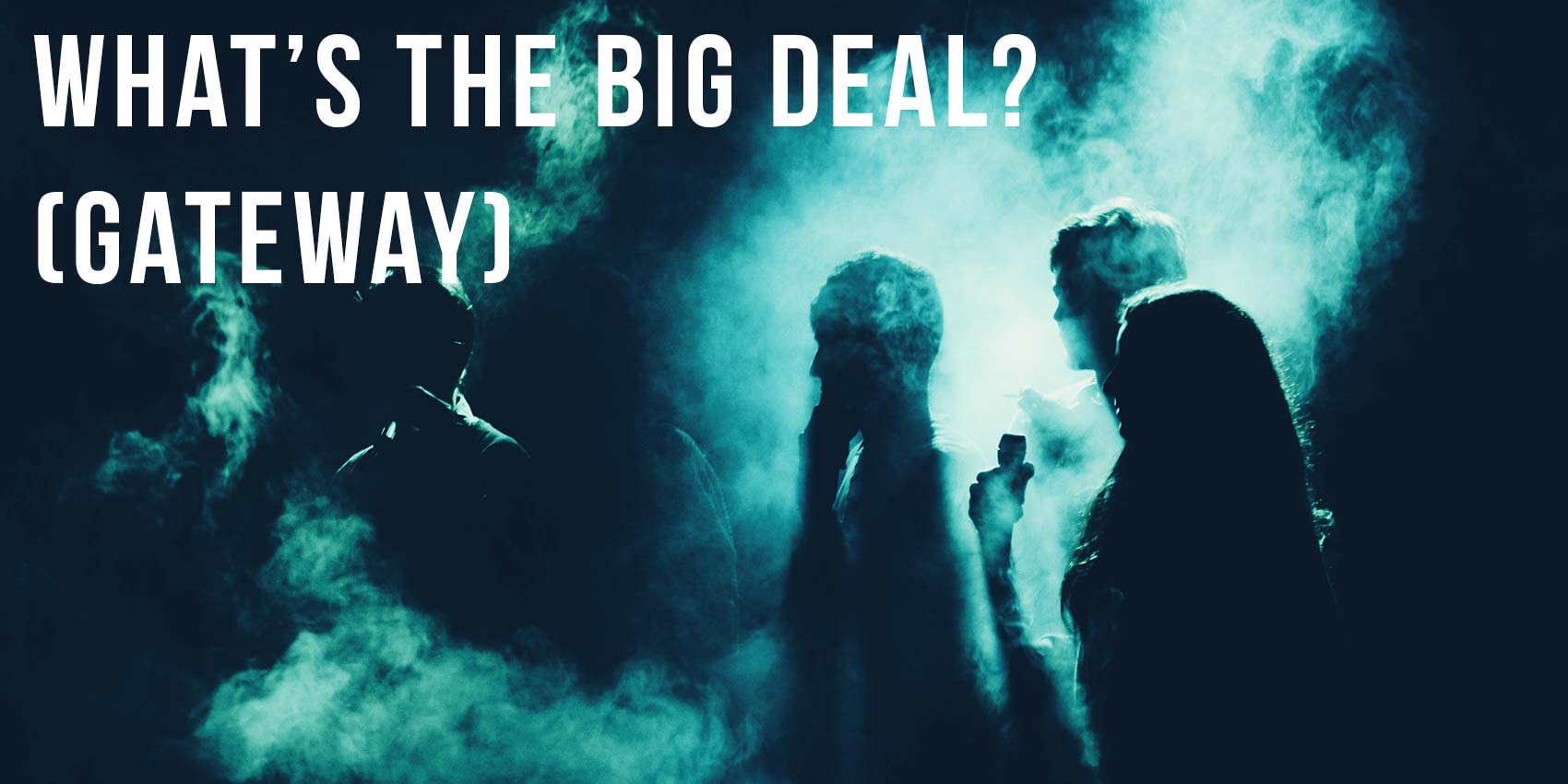09 Nov What’s the big deal? (Gateway)


DID YOU KNOW? “A recent study found that 99% of those who use illicit drugs other than marijuana had previously used marijuana. However, a majority of marijuana users studied (63%) did not go on to use other illicit drugs.”
(Source: http://www.cesar.umd.edu/cesar/pubs/marijuana.pdf)
Many teens look at pot and think, Hey, what’s the big deal? So many people do it and they’re fine. It’s sort of like alcohol and yet alcohol is legal.
So some of them try it.
And then you can imagine what most adults will say right now: And they get addicted and end up moving on to stronger drugs and eventually wind up an addict or dead in a ditch.
Well, it’s not that simple. The truth of the matter is that many teenagers who try pot do not end up addicts or dead in a ditch (See the DID YOU KNOW above). Many are able to quit before it turns into a dangerous habit. Many are able to walk away, to say no, and to realize both the short and long term effects are not good for them.
So, what’s the big deal?
The answer to that question centers around pot possibly being “the gateway drug.”
What does that mean?
It means that many believe that pot opens the “gates” (doors, avenues, possibility) to people using other, stronger, more “dangerous” drugs. As an example, one study found that cannabis use increased the likelihood of eventual opioid use. (Source: http://www.castri.org/Cannabis-Opioids.pdf ) As such, research is now examining whether or not exposure to pot as a teen can cause enough changes in the brain to lead a person to being more likely to become addicted (to any drug) as an adult.
This is one of the largest fears about marijuana use. If someone is willing to try one drug like pot, what will stop them from trying more? That’s the gateway theory: do one illegal drug and you are more likely to try another since you have already broken the law and/or now that you have tried one high, you might be more likely to seek out other drugs that produce a bigger high, especially because people can develop tolerance to marijuana (again, please read the DID YOU KNOW at the top of this sub-post).
Some of you reading this may say, “Enough with the scare tactics. I’ve heard that pot can be beneficial for people and it’s even legal in some states so it can’t be that bad.”
The research on the possible benefits of marijuana is just emerging (meaning beginning). It has not been approved by the FDA for use as the FDA has strict guidelines that require large scale studies to prove both safety and effectiveness. Partly because marijuana has been illegal in the past, very few such studies exist. The FDA has approved THC the main ingredient in marijuana to treat nausea, but not marijuana itself. This is because research does exist about some very serious harmful effects of marijuana. (Source: https://www.drugabuse.gov/publications/drugfacts/marijuana) In fact, marijuana is still classified by the government as a Schedule 1 drug because of the serious risk of addiction.

Medical marijuana is when marijuana, or its extracts, are used to treat a variety of illnesses, such as nausea from chemotherapy, seizure disorders and Crohn’s disease.
Back to the gateway drug theory… besides the harmful health effects, pot can open many different gates to many dangerous places besides more drug use: it can cause accidents (often fatal), make you forget things that you did, allow you to do things you normally wouldn’t, and alter the way your mind works for the worse (see next sub-post).
If you haven’t read Patrick’s story, a sub-post in the Drugs in General post, please do, as it shows how all those different “gates” were opened for him with pot. (But remember, the story is intense, so read with caution.)
To learn about how pot influences your brain, read on….




Post Question:
What do you think of the “gateway drug” theory?
Answer the post question here
What's being said